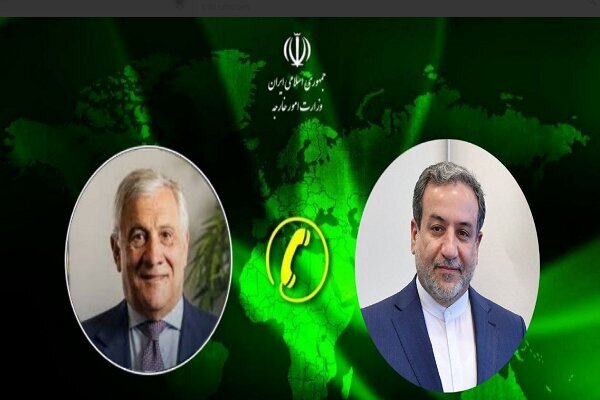Iran to give ‘measured response’ to Israeli assassination of Hamas leader: FM

TEHRAN – Iran’s foreign minister, Abbas Araqchi, has declared that Iran’s response to Israel's assassination of senior Hamas political leader Ismail Haniyeh will be "definitive," though it will be executed with careful calculation.
This announcement was made during a phone call with Italian foreign minister Antonio Tajani on Sunday, where Araqchi emphasized that while Iran is not seeking to escalate tensions, it does not shy away from potential escalation if necessary.
The assassination of Haniyeh, who was killed in a targeted operation in Tehran on July 31 during his visit for the inauguration of Iranian President Masoud Pezeshkian, has significantly heightened regional tensions.
Araqchi stressed that Iran reserves the right to retaliate against Israel’s "unforgivable" act, a message he also conveyed to the United Kingdom and France on Friday.
During the call, Araqchi clarified that, unlike the Zionist regime, Iran does not seek to expand tension, although the country is not afraid of it.
While stressing the importance of expanding bilateral relations, the parties emphasized the continuation of consultations.
Tehran, Riadh highlight the need to stop Israeli crimes in Gaza
Amid these developments, Araqchi has been actively engaging in diplomatic conversations with key regional players. In a recent discussion with Saudi foreign minister Faisal bin Farhan Al Saud, the two diplomats expressed a shared sense of urgency in addressing the ongoing violence in Gaza.
They called for intensified efforts to stop Israel’s military actions and ensure the delivery of humanitarian aid to the besieged Palestinian population.
The Gaza conflict has already resulted in the deaths of over 40,435 Palestinians, primarily women and children, since October 2023. A ministry statement added that some 93,534 other people have been injured in the assault.
Over ten months into the Israeli war, vast tracts of Gaza lie in ruins amid a crippling blockade of food, clean water and medicine.
Israel faces accusations of genocide at the International Court of Justice, which has ordered a halt to military operations in the southern city of Rafah, where over one million Palestinians had sought refuge before the area was invaded on May 6.
Araqchi and bin Farhan also discussed the importance of strengthening their bilateral relationship, emphasizing that enhanced cooperation between Tehran and Riyadh would contribute to greater stability across the West Asia.
In addition to his dialogue with Saudi Arabia, Araqchi has reached out to several other regional powers. Over the past two days, he held separate phone conversations with his counterparts from Egypt, Turkey, Azerbaijan, and Armenia. These discussions covered a range of issues, from the situation in Gaza to broader regional dynamics.
Araqchi also received calls from Azerbaijani foreign minister Jeyhun Bayramov and Armenian foreign minister Ararat Mirzoyan.
In a series of posts on his X account, Araqchi stated that moving towards a "strong and united region" through dialogue, cooperation, and empathy with neighboring countries is a key priority of Iran’s foreign policy.
